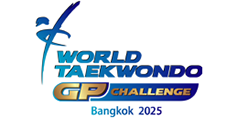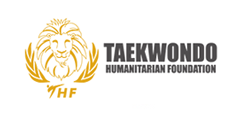
SEOUL, Korea (Apr 7, 2024) - In the pursuit of comprehensive athlete care, World Taekwondo (WT) has delved into an essential aspect of athlete well-being: mental health. The recent survey titled "Mental Health in Elite Level Taekwondo Athletes" has provided invaluable insights into the mental landscape of elite Taekwondo practitioners. This survey, conducted as part of WT's Sustainability Strategy, aimed to grasp the nuanced challenges faced by athletes. With World Mental Health Day on October 10, 2023, serving as a significant context, WT embarked on this journey to prioritize the holistic well-being of its athletes. As the world marks World Health Day on April 7, 2024, the completed results and overall report are published, underscoring WT's commitment to the well-being of its athletes.
The survey targeted athletes aged 21 or older actively involved in Taekwondo events. Through an adaptation of the Sport Mental Health Assessment Tool 1 (SMHAT-1), endorsed by the International Olympic Committee, athletes were asked questions covering psychological distress, anxiety, depression, and disordered eating. The subsequent statistical analyses, including multiple regression analyses, unveiled significant correlations between various demographic factors and mental health indicators.
The findings present a compelling narrative, shedding light on the prevalent mental health challenges encountered by elite Taekwondo athletes. The survey revealed that males scored significantly lower than females in anxiety and depression. Additionally, athletes aged 26-31 had significantly higher scores in psychological distress, anxiety, and depression compared to other age groups, emphasizing the impact of age on mental well-being. Furthermore, Kyorugi (sparring) athletes had significantly higher scores in psychological distress and disordered eating compared to other disciplines, while Poomsae (forms) athletes exhibited lower scores in disordered eating.
Amidst the flows of competition, athletes in the pre-competition phase experienced significantly higher levels of anxiety. For those grappling with injuries, the burden extended beyond physical limitations, as they reported significantly higher levels of psychological distress, anxiety, and depression.
The survey also revealed critical insights, painting a vivid portrait of the mental health landscape within elite Taekwondo. Among athletes involved in the study, 60% surpassed the threshold for psychological distress, with 20% exceeding the threshold for anxiety and 23% for depression. Notably, 6% of the cohort indicated severe anxiety, while an equal proportion exhibited moderately severe depression. Additionally, 4% presented with severe depression. Alarmingly, 9% of athletes admitted to considering the use of harmful substances for weight loss.
For a comprehensive overview of the survey results and recommendations, the full report is accessible here.
By addressing mental health challenges and advocating for tangible solutions, World Taekwondo reaffirms its commitment to prioritizing athletes’ well-being and fostering a culture of care within the Taekwondo community. Together, the aim is to cultivate a supportive environment where athletes flourish, not only on the mat but as individuals with holistic health at the forefront.



































